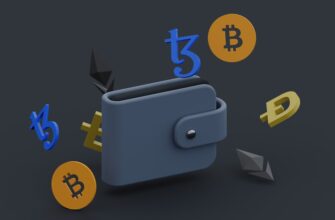- What Is P2P Trading Crypto and Why Is It Revolutionizing Finance?
- How P2P Crypto Trading Works: A Step-by-Step Breakdown
- Top 5 Benefits of P2P Crypto Trading
- Mitigating Risks in P2P Crypto Transactions
- Getting Started with P2P Trading: A Beginner’s Checklist
- Best P2P Crypto Platforms in 2024
- P2P Trading Crypto FAQ
What Is P2P Trading Crypto and Why Is It Revolutionizing Finance?
Peer-to-peer (P2P) crypto trading allows users to buy and sell digital assets directly with one another, bypassing traditional intermediaries like centralized exchanges. This decentralized approach leverages escrow services and reputation systems to facilitate secure transactions. As cryptocurrency adoption grows—especially in regions with limited banking access—P2P platforms empower users with greater control over pricing, payment methods, and transaction speed. Unlike conventional exchanges, P2P trading crypto platforms enable direct negotiations, supporting diverse fiat options like bank transfers, PayPal, or even cash deals.
How P2P Crypto Trading Works: A Step-by-Step Breakdown
P2P exchanges connect buyers and sellers through order books where users post trade offers. Here’s the typical process:
- Create an Account: Sign up on a P2P platform (e.g., Binance P2P, LocalBitcoins) and complete identity verification.
- Post or Browse Offers: Sellers list cryptocurrencies with preferred payment methods and prices; buyers filter options based on location or currency.
- Initiate Trade: Buyer selects an offer and locks the crypto in escrow. Funds are held securely until completion.
- Make Payment: Buyer sends fiat via the seller’s chosen method (e.g., bank transfer) and confirms payment.
- Release Crypto: Seller verifies receipt and releases crypto from escrow to the buyer’s wallet.
Top 5 Benefits of P2P Crypto Trading
- Lower Fees: Avoid high exchange commissions—most P2P platforms charge minimal or zero fees.
- Flexible Payments: Use local payment systems (e.g., UPI in India, Pix in Brazil) unavailable on centralized exchanges.
- Privacy Control: Negotiate directly with counterparties without sharing sensitive data with third parties.
- Market-Driven Pricing: Set custom rates or find better deals than automated exchange prices.
- Financial Inclusion: Access crypto in areas with banking restrictions or volatile currencies.
Mitigating Risks in P2P Crypto Transactions
While P2P trading offers freedom, it carries unique risks. Protect yourself with these strategies:
- Escrow Protection: Only trade on platforms with robust escrow systems that hold crypto until payment confirmation.
- Reputation Checks: Review a trader’s completion rate and feedback score before transacting.
- Secure Payment Methods: Avoid irreversible options like gift cards. Use services with transaction proof (e.g., bank receipts).
- Avoid Off-Platform Communication: Scammers may lure users to external apps—keep all discussions in-platform.
- Small Test Transactions: For large deals, conduct a small test trade first to verify legitimacy.
Getting Started with P2P Trading: A Beginner’s Checklist
- Research reputable platforms (e.g., Paxful, Bybit P2P, or Huobi P2P).
- Enable two-factor authentication (2FA) on your account.
- Complete KYC verification for higher limits and trust.
- Start with low-value trades to build confidence.
- Withdraw crypto to a private wallet after purchase for added security.
Best P2P Crypto Platforms in 2024
- Binance P2P: Supports 300+ payment methods and 100+ fiat currencies with zero fees.
- LocalCoinSwap: Decentralized platform with 50+ cryptocurrencies and cash options.
- Paxful: Ideal for gift card traders; features 350+ payment methods.
- Bybit P2P: Low spreads and high liquidity for popular coins like BTC and USDT.
- Kucoin P2P: Strong in emerging markets with competitive BTC pricing.
P2P Trading Crypto FAQ
Q: Is P2P crypto trading legal?
A: Yes, in most countries. However, comply with local regulations—some nations restrict crypto-fiat trades.
Q: Can I trade anonymously on P2P platforms?
A: Partially. While KYC is often required, payment methods like cash allow pseudo-anonymity during transactions.
Q: What if a seller doesn’t release crypto after payment?
A: Open a dispute. Platform moderators will review payment proof and release escrowed funds accordingly.
Q: How long do P2P trades take?
A: Typically 15–60 minutes, depending on payment confirmation speed. Bank transfers may take longer.
Q: Are P2P trades taxable?
A: Yes. Cryptocurrency transactions are taxable events in many jurisdictions. Report gains/losses accurately.








